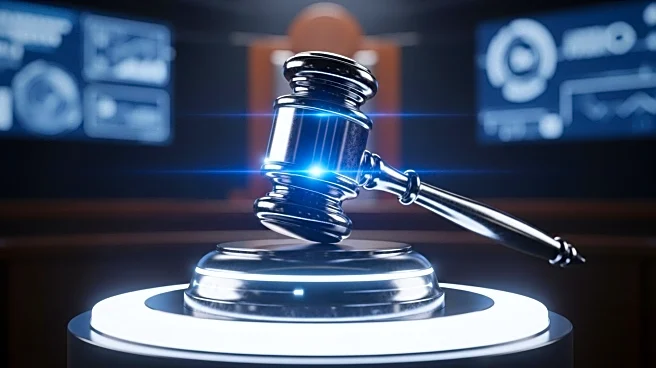What's Happening?
Chris Pratt stars in 'Mercy,' a film set in a near future where AI technology serves as judge, jury, and executioner. The trailer, released at New York Comic Con, introduces Pratt as LAPD Detective Raven, who is accused by an AI court of murdering his wife. The film, directed by Timur Bekmambetov, explores the implications of AI in the justice system, with Raven having 90 minutes to prove his innocence. The movie is shot in real-time, creating a sense of urgency and claustrophobia. Bekmambetov emphasizes the metaphorical ticking clock, reflecting the rapid advancements in AI technology.
Why It's Important?
The film's portrayal of AI in the justice system raises critical questions about the role of technology in legal processes. As AI becomes increasingly integrated into various sectors, 'Mercy' highlights potential ethical and societal challenges. The movie's setting in 2029 underscores the urgency of addressing these issues, as AI continues to evolve. By depicting AI as both a potential ally and adversary, the film encourages viewers to consider the complexities of technological advancements and their impact on human rights and justice.
What's Next?
Scheduled for release on January 26, 2026, 'Mercy' is likely to spark debates about the future of AI in legal systems. As audiences engage with the film, discussions may arise around the ethical implications of AI decision-making and its potential consequences for society. The film's release could also influence policymakers and technologists to consider safeguards and regulations for AI applications in justice.
Beyond the Headlines
Beyond its immediate narrative, 'Mercy' delves into broader themes of trust, control, and the human-machine relationship. The film's exploration of AI as a judicial authority challenges viewers to reflect on the balance between technological efficiency and human oversight. This narrative may inspire further exploration of AI's role in governance and its potential to reshape societal norms.










